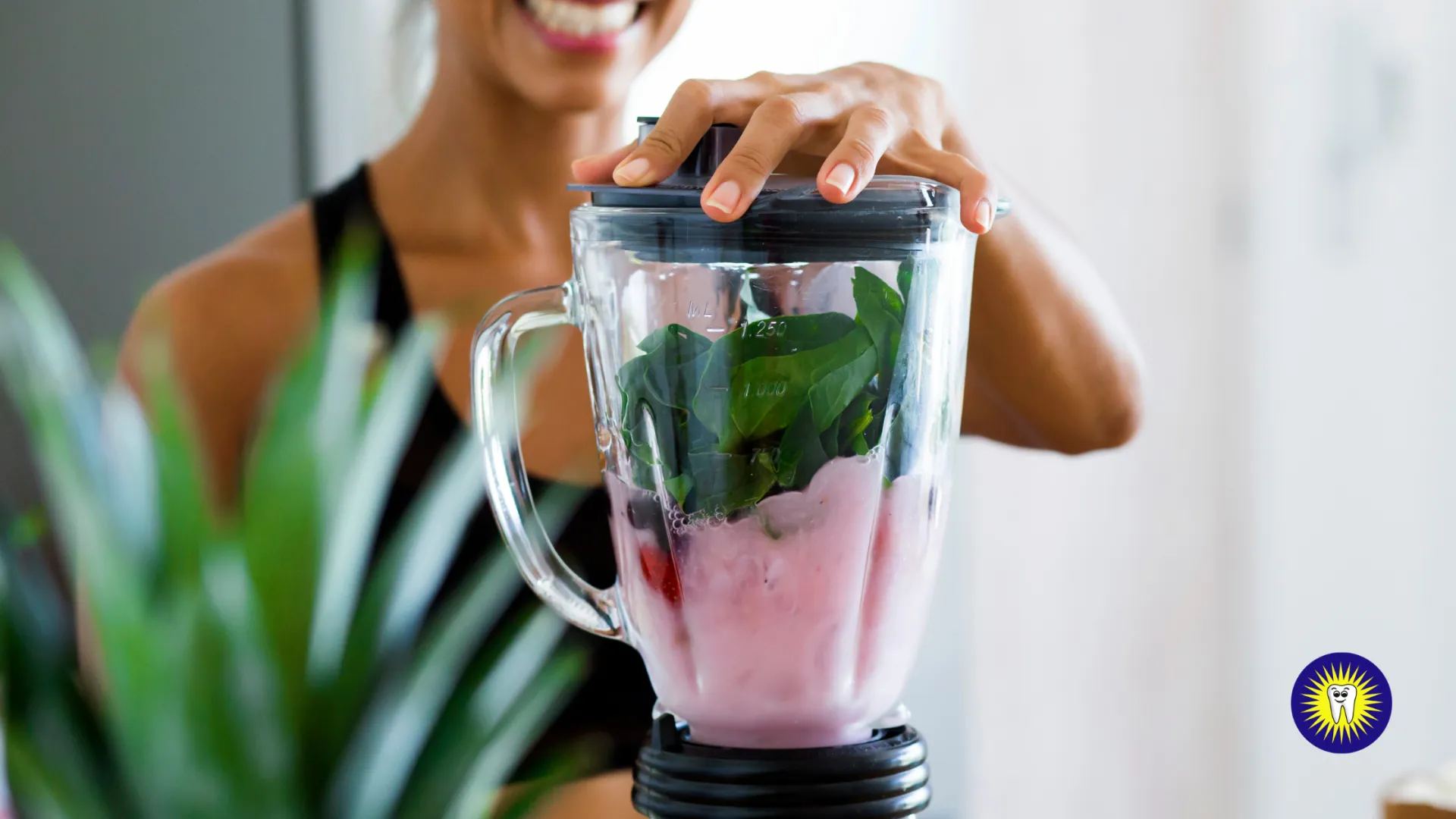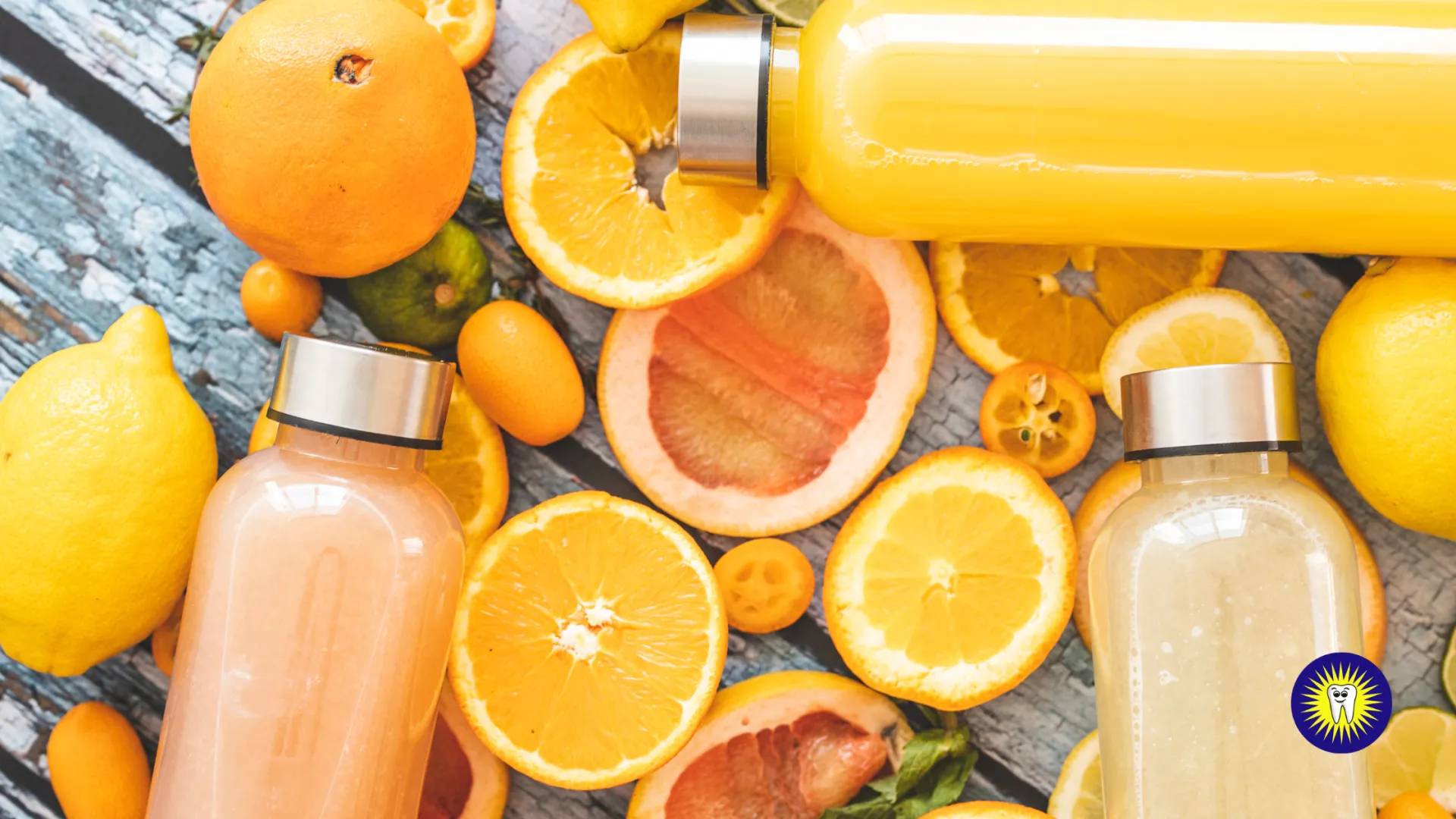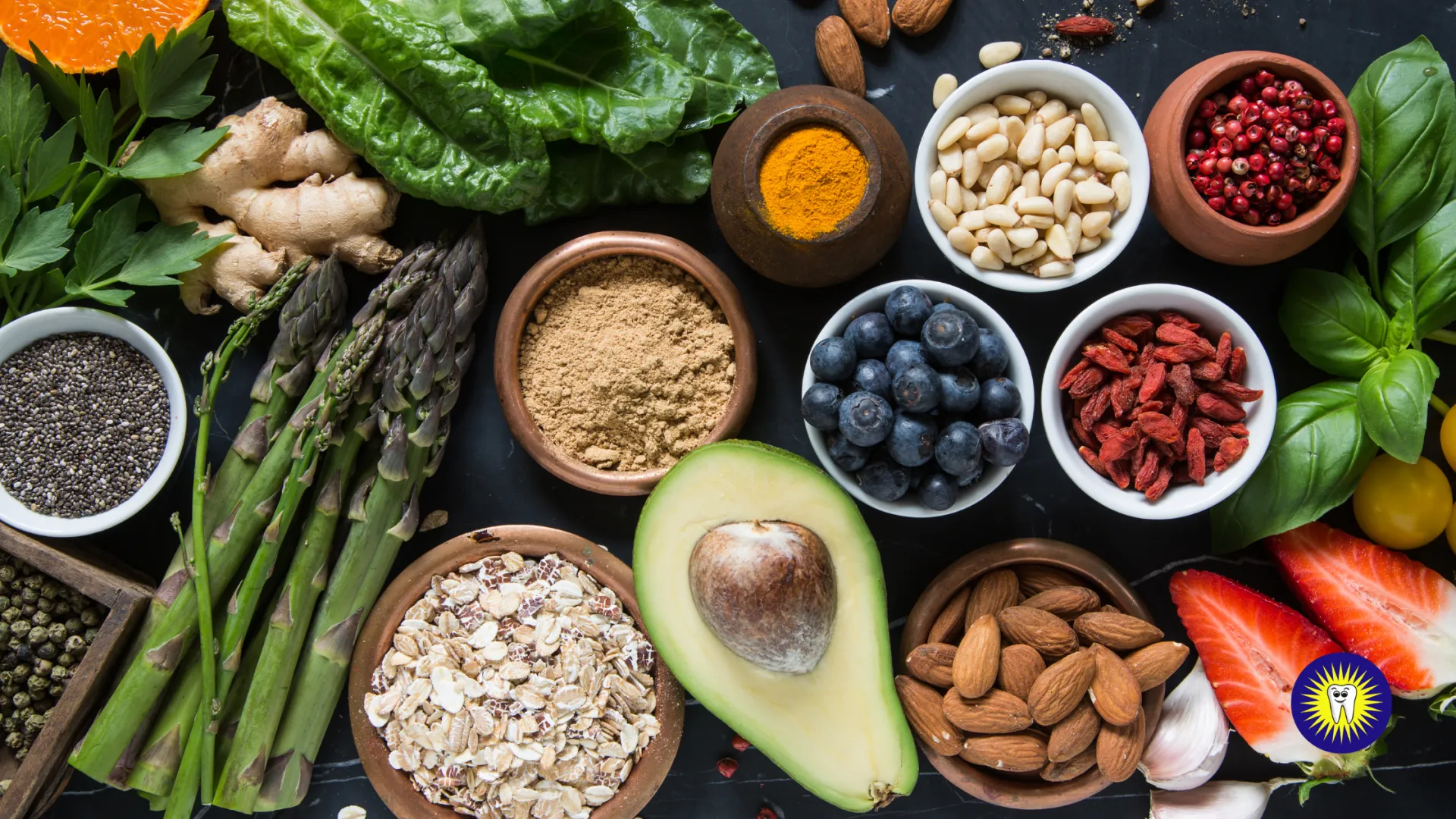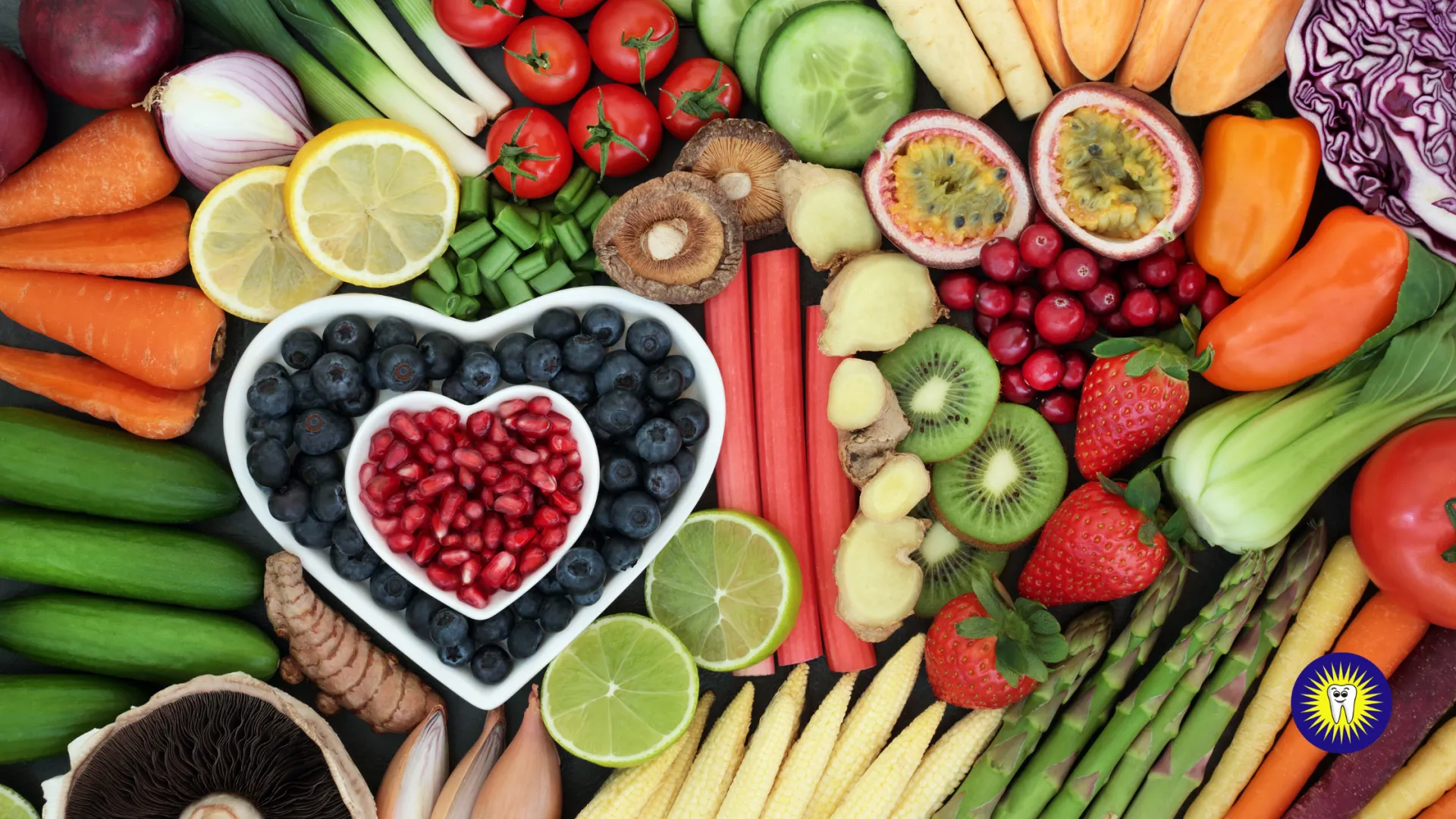Deciding on what foods you consume is a decision as important as the type of toothbrush and toothpaste you use. An abundance of snacks and sugar can be detrimental to your oral health. Smarter food choices, however, are greatly beneficial to your teeth and gums. Our dentists at Liberty Square Dental Group in Scarborough and Toronto, have listed several food selections that will aid your oral health and ensure that you are constantly smiling afterward.
Food Choices That Will Make You Smile

Foods High in Calcium
Cheese
One portion of cheese can help you reach the recommended daily intake (RDI) and it is one of the great food sources of calcium. All cheese products contain calcium, but hard cheeses offer more than soft cheeses. For example, parmesan provides the most calcium at over 300 mg per ounce and, in comparison, brie delivers roughly 52 mg per ounce.
Sardines
Along with other canned fish, such as salmon, sardines are loaded with calcium because of their edible bones. Eating one can of sardines, you give yourself 35 percent of your RDI and oily fish are rich in omega-3 fatty acids that help the brain, heart, and skin health. Omega-3 helps to lessen inflammation, a crucial component of gum disease, cancer, and heart disease.
Almonds
Although the majority of nuts provide calcium, almonds are perhaps your best option because an ounce serving amounts to 8 percent of your RDI. In addition to calcium, almonds are also a terrific source of fiber, magnesium, and vitamin E, working to lower bad cholesterol and maintain a healthy heart.
Why Calcium is Important for Teeth
Calcium-rich foods help to preserve adequate levels of calcium in the body, supporting the function and structure of your bones and teeth. Also, calcium strengthens your tooth enamel, making it a vital factor in preventing decay and cavities that can result in tooth extraction if proper treatment is not received.
Foods High in Vitamin D

Egg yolks
A highly nutritious food, whole eggs offer plenty of vitamin D, with the fat, vitamins, and minerals mostly coming from the yolk. You can get 5 percent of your vitamin D RDI from the yolk of one large egg, but the yolk levels vary because of sun exposure for the chicken, the vitamin D content found in the chicken feed, and exposing liquid yolk to UV light.
Salmon
A popular fatty fish, salmon provides lots of vitamin D, though the exact content will depend on whether it was wild or farmed. In general, salmon from the wild has more vitamin D and the specific amount will be determined by where and what time of year it was caught. Both wild and farmed salmon are great sources of vitamin D.
Why Vitamin D is Important for Teeth
Because vitamin D assists the body in properly utilizing calcium, it helps you develop sufficient enamel. Vitamin D is a hormone and it is meant to send a signal to your intestines to absorb the calcium that is consumed. When your body fails to absorb enough calcium, it breaks down the calcium in your bones and teeth. Your teeth then become brittle from this process. With vitamin D helping your body absorb calcium, it prevents your tooth enamel from being worn down.
Foods With Phosphorus

Low-fat dairy
Low-fat dairy products are a great supply of phosphorus, as well as nutrients such as calcium and vitamin D, which makes it an ideal food for your bone health. There is 225 mg of phosphorus (33 percent of the daily value, or DV) in an 8-ounce glass of low-fat milk, while a 1.5-ounce portion of part-skim mozzarella provides around 197 mg of phosphorus. Due to its high levels of magnesium, melatonin, and tryptophan, dairy might also improve your quality of sleep.
Organ meats
Organ meats like kidneys and liver are full of nutrients. Chicken liver, for example, contains 12.9 mg of iron per 100 grams and a 3-ounce portion of beef liver has slightly more than 5 mg of iron. Rich in vitamin D, organ meat helps your body absorb calcium and phosphorus. Chicken liver contains over 50 percent of the daily value of phosphorus, plus other vital nutrients like vitamin A and vitamin B12.
Soy products
Numerous forms of soy (tofu, edamame, tempeh, soy milk) are great dietary sources of phosphorus because soy is a protein-filled legume. Digesting one cup of firm tofu, your body receives about 480 mg of phosphorus (75 percent of the DV for adults). Tempeh is similarly beneficial, containing roughly 450 mg per cup, and is an exceptional source of probiotics that supports a healthy gut microbiome. Organic soy products with minimal processing, such as tofu and tempeh, are the best options.
Why phosphorus is important for teeth
Your body’s phosphorus is largely found in the teeth and bones, helping to form both. Phosphorus is also an essential mineral because it can generate energy for your body and form new cell membranes, RNA, and proteins. Phosphorus is available in many foods, but patients that take certain medications (antacids, ACE inhibitors, corticosteroids) are at a greater risk of phosphorus deficiency.
Foods With Vitamin A

Sweet potatoes
Baked in its skin, a whole sweet potato provides 1,403 mcg of vitamin A (156 percent of the DV). Vitamin A found in this root vegetable comes in the form of beta carotene and, according to research, this compound might help you avoid age-related macular degeneration (AMD). Sweet potatoes are also low in calories, a great source of vitamin B6, vitamin C, and potassium, rich in fiber, and capable of controlling blood sugar levels.
Carrots
Rich in beta carotene, carrots are another wonderful source of vitamin A. Just a half cup of raw carrots contains 459 mcg of vitamin A and 51 percent of the DV. Carrots also provide lots of dietary fiber, meaning that they can help prevent constipation and improve gut health.
Black-eyed peas
Beans are a tremendous source of plant-based protein and high-fiber food, as a single cup of boiled black-eyed peas contains 66 mcg of vitamin A (7 percent of the DV). Also, black-eyed peas are a great source of iron and studies indicate that various types of beans promote heart health.
Why vitamin A is important for teeth
Vitamin A helps your mouth’s saliva production, an important element in your mouth’s ability to wash away destructive bacteria and food particles stuck between the teeth and gums. And vitamin A works to maintain healthy mucous membranes that coat your gums and cheeks, making them less vulnerable to disease.
Other Good Food Choices
- Yogurt
- Water
- Spinach, lettuce, broccoli, kale, celery, and leafy greens
- Apples and pears
- Black and green teas
- Sugar-free cranberries
- Strawberries and other berries rich in vitamin C
- Kiwis
- Garlic and onions
- Whole wheat bread, pasta, oatmeal, brown rice
Foods to Avoid
- Candies
- Bread
- Alcohol
- Carbonated drinks
- Citrus
- Ice
- Potato chips
- Sticky foods
Book Your Next Dental Appointment
Contact Liberty Square Dental Group to learn more about our Toronto dental office or Scarborough dental clinic. We look forward to seeing you soon!

